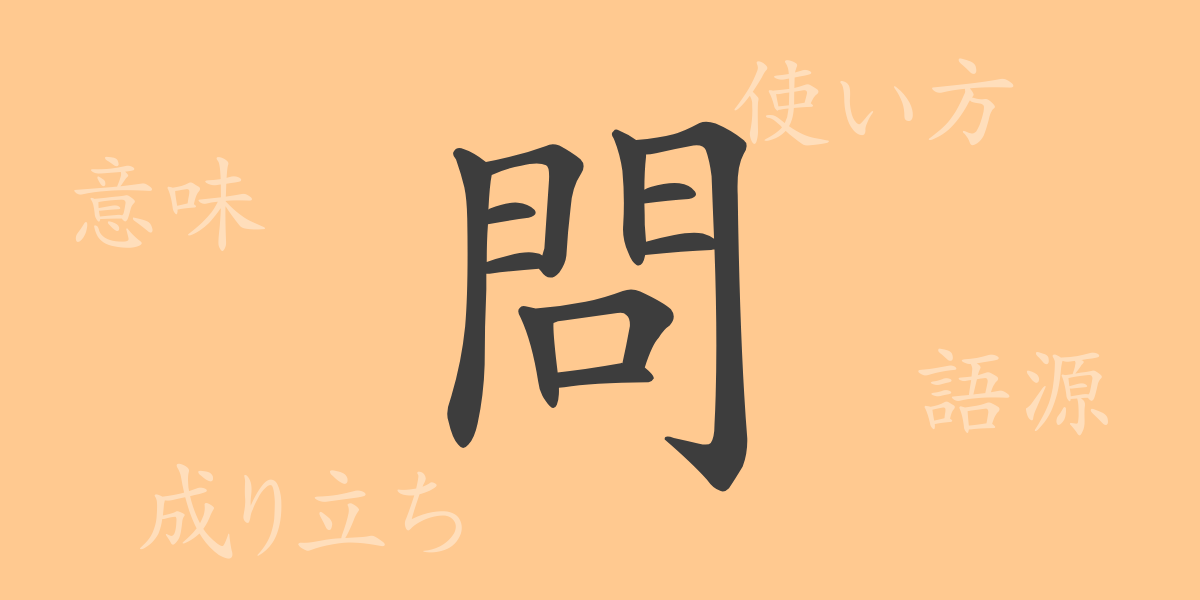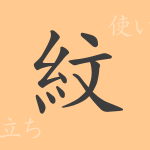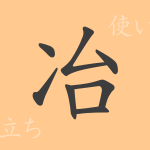The beauty and complexity of the Japanese language are shaped by its profound history and culture embedded in its writing system. Among the intricate characters, Kanji (かんじ) stands out, and one of the essential 常用漢字 (じょうようかんじ, Joyo Kanji) in Japanese, 「問」 (もん, Mon), embodies a crucial concept at the core of communication. In this article, we delve into the mystery of 「問」 (もん, Mon), exploring its origins, meanings, usage, and its role in the Japanese language.
Origins of 「問」 (もん, Mon)
The Kanji 「問」 (もん, Mon) is a character that originated from ancient China, symbolizing a hand knocking on a door. This imagery conveys the essence of asking or inquiring, which is to seek or explore. Over time, this character was introduced to Japan and developed uniquely, yet its fundamental meaning has remained unchanged, continuing to play a significant role in modern Japanese.
Meanings and Usage of 「問」 (もん, Mon)
The Kanji 「問」 (もん, Mon) encompasses meanings such as “to question,” “to inquire,” and “problem.” It also broadly implies “to explore” through the act of seeking truth or information via dialogue. In Japanese, many words using this Kanji are employed in contexts of communication and academia.
Readings, Stroke Count, and Radical of 「問」 (もん, Mon)
The Kanji 「問」 (もん, Mon) demonstrates the richness of the Japanese language in its readings and writing.
- Readings: The On’yomi (おんよみ, Chinese reading) is “モン” (もん, Mon), and the Kun’yomi (くんよみ, Japanese reading) includes “と・う” (とう, Tou), “と・い” (とい, Toi), and “とん” (とん, Ton).
- Stroke Count: The stroke count for 「問」 (もん, Mon) is 11 strokes.
- Radical: The radical of 「問」 (もん, Mon) is 「門」 (もん, Mon).
Idioms, Expressions, and Proverbs Using 「問」 (もん, Mon)
Idioms and expressions containing 「問」 (もん, Mon) reflect the depth and cultural background of the Japanese language. For instance, 「問題」 (もんだい, Mondai) means “a matter requiring discussion or resolution,” and 「問い合わせ」 (といあわせ, Toiawase) refers to “the act of seeking information or confirmation.” Additionally, the idiom 「問答無用」 (もんどうむよう, Mondou Muyou) means “deciding without debate,” used to express a firm stance.
Conclusion on 「問」 (もん, Mon)
The Kanji 「問」 (もん, Mon), from its form to its origins, meanings, and usage, symbolizes the importance of communication in the Japanese language. The rich expressive power of this single character teaches us the depth of Japanese words, making it an indispensable element in everyday dialogue and learning. We hope this article helps you touch upon the world of 「問」 (もん, Mon) and deeply understand its meaning.
“`

























